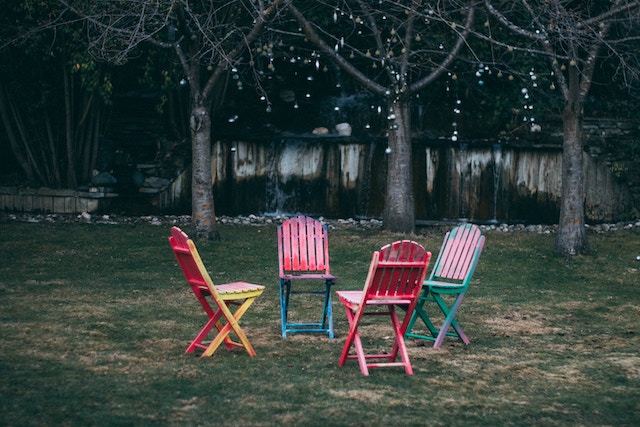Lawn Care Mistakes That Could Ruin Your Curb Appeal
Whether you’re thinking of selling your house or you just want to make it stand out in your neighborhood then curb appeal is all-important. There are many ways to get the outside of your house dressed up to the nines, such as repaving driveways, replacing or repairing windows and giving the exterior a coat of paint, but nothing compares to having a beautiful, lush, verdant lawn. Here are a few things to avoid so you can keep your grass in tip-top shape, good health and just as green as your neighbors will be with envy.
Cutting It Fine
Keeping the grass mown is obviously important in maintaining curb appeal. But grass can be cut too short, which impedes its ability to absorb that all-important sunlight to keep it growing and thriving. Experts recommend not cutting it to more than a third of its length at any one time, or to a maximum of about 2.5 inches. Any more than that and it will lose a lot of the magical powers of photosynthesis, and could dry up or yellow in color. So don’t give it a buzzcut, a no-top will do nicely, as long as it’s neat!
Not Watering Enough
Many countries around the world have areas prone to drought, so it’s important to make sure you water your lawn the right amount to keep it growing healthily. If you do live in a dryer area it would be beneficial to lay the right turf, one that is more resistant to dryer conditions to start with. In terms of watering, the right amount is crucial. Too little and you’ll be faced with a dry, unhealthy patch of grass. Remember that the roots of the grass need to absorb water to keep growing and that much of the water from a brief ten or twenty-minute sprinkle can easily evaporate before it has been much use. So make sure you water thoroughly. One test for seeing if you need to water is if you can see footprints on the grass when you walk across it.
Overwatering
For the less motivated (or just plain lazier) gardener, the temptation to stick the sprinkler on all day and kick back with a tinny in a deck chair is always there. But spare a thought for your lawn – just as too little water is an issue, overwatering can be just as harmful. Even in the height of summer, when the temptation to water every day is there, it’s best to water intensely once or twice a week. Daily watering encourages a shallow root system, which can damage your grass in the long term. Allowing your garden to develop a deeper root system will help fend off disease, bugs and other threats to your lawn.
When to Water?
The best time of day to get that grass moist is in the early morning. This gives the sun less opportunity to evaporate the water and lets it get to where the grass needs it most. Avoid watering in the evening, as cool, wet grass is a breeding ground for diseases.
Fertilizer
If your lawn does look like it’s suffering through dryness or discoloration, don’t just dump a load of fertilizer on it without consulting the instructions on the bag or doing some online research. Too much can be very damaging for your lawn (and other plants) in the long term, and you’re likely to need much less than you think. Remember also that powdered or granular fertilizer washes away easily with watering or rainfall, so it’s best to use specialized products or regular compost. Remember also to fertilize at the right time of year – not at the height of summer. Do it in spring when your lawn is growing to reap the rewards.
Keep it Clear
Leaving out garden furniture, kids’ toys such as paddling pools or tents can mean your lawn will suffer from uneven sunlight and flattening of the grass. Always pack everything away once you’ve finished with it. If you’ve been working away with a mower or other tools it goes without saying that you should pack up when you’re done – not only can it damage the lawn but you don’t want your gear getting damaged or rusty overnight – even if it doesn’t rain the dew can rust the blades of your mower. And let’s not forget at this point to mention that mowing with rusty or dulled blades can do more harm than good to your patch of grass.
Doggie Do(n’t)
If you have a four-legged friend try to train them to use one patch of the lawn to do their business. Dog urine is very acidic and causes yellow patches all over the place. We all know what a hazard dog doo-doo is – so keep an eye out for it too and clean it up pronto – the last thing you want is to tread in it or go over it with the mower, and it is full of stuff you don’t want getting into your soil.
Keeping your lawn looking great is a real boost to the general look of your house from the outside. Follow these tips to keep your curb appeal at its peak – if you’re selling it’s a really appealing prospect for potential buyers, and if you’re not, it’ll make you feel house proud every time you come home!

